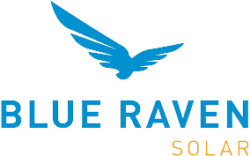California is one of the country’s most solar-friendly states. It annually leads the United States in solar capacity—enough to power 5.4 million homes—and has a 100% renewable energy goal by 2045. This includes a major expansion in the residential solar market.
If you’re considering going solar in The Golden State, this guide will help you in your solar research. After investing 300 hours into researching the country’s best-rated solar installers, we narrowed our list to the best solar companies in California.
Compare Solar Companies Across CA
Better Business Bureau (BBB) ratings current as of June 2023
California’s Top Solar Energy Companies:
- SunPower: Best High-Efficiency System
- ADT Solar: Best Solar Warranty
- Sunrun: Best Solar Panel Leasing
- Palmetto Solar: Best Customer Support
- Momentum Solar: Best Solar Panel Installation
Solar Incentives in California
Given the state’s goal for 100% clean energy by 2045, California officials have spent several years pushing for solar conversion. California provides several solar incentives, credits, and rebates to help offset solar system costs, making going solar more affordable. Below, we’ll highlight some top California solar incentives for homeowners.
Federal Solar Tax Credit
All California residents qualify for the federal tax credit. This program offers up to 30% off solar installation costs for photovoltaic (PV) panels. (Photovoltaic cells make up a solar panel.) This credit also applies to standalone solar battery installation, making it more affordable to add battery backup options to existing solar systems. The federal tax credit is not a rebate or cash payment. Instead, it’s applied to your owed federal tax liability. At tax time, this credit helps reduce or eliminate any owed taxes.
Net-Metering in California
California’s net-metering, or net energy metering program (NEM), provides credits for excess electricity sent back to the grid. These credits appear on your electric bill and reduce your costs. As of December 2022, California changed its NEM program to NEM 3.0. Starting April 15, 2023, NEM credits were reduced by 75%. Previously, residents received credits equal to their original per-watt costs. With the new program, you’ll receive a wholesale rate closer to what utility companies pay to produce electricity.
NEM 3.0 applies to all new solar installations occurring on or after April 15. Homeowners under the previous plans, NEM 1.0 and 2.0, are grandfather for 20 years starting from their solar system activation date. After that, you move to the latest NEM program. Wood Mackenzie reports that NEM 3.0 will extend California’s average solar payback period from five to six years to 14–15 years.
Other State Solar Rebates
You should also consider the following state incentives to reduce your up-front solar system costs.
- Active Solar Energy System Property Tax Exemption: Under this exemption, homeowners benefit from solar panels boosting their home value without increasing their property tax.
- Disadvantaged Communities – Single-Family Solar Homes (DAC-SASH): This program provides affordable solar system installations to California’s most disadvantaged homeowners. Homeowners must meet income requirements and be current customers of Pacific Gas and Electric (PG&E), San Diego Gas and Electric (SDG&E), or Southern California Edison (SCE).
- Self-Generation Incentive Program (SGIP): This program provides up-front rebates for the addition of a solar battery to your home system. The SGIP offers $200 per kilowatt-hour (kWh) of stored energy capacity. For example, you would earn about $2,700 in Tesla Powerwall cost savings, thanks to its 13.5-kWh energy capacity.
- Equity Resilience Rebate Program: This rebate program offers up to $1,000 per kWh to low-income households, homeowners in high-risk fire areas, and those who experienced two or more Public Safety Power Shutoff (PSPS) events.
- Local incentives and rebates: Additional incentives and rebates are available to residents in certain counties, cities, and municipalities. Some utility customers may receive special rebates for solar panel and battery storage installations.
Check the Database of State Incentives for Renewables & Efficiency (DSIRE) for a complete list of local incentives.
Solar Installation Companies State Availability
Types of Solar Panels
There are several types of solar panels available for homeowners. Each type provides its own efficiency rates and benefits. Below is an overview of each available residential solar panel type.
- Monocrystalline solar panels: Monocrystalline panels offer the best energy efficiency and power production of all panel types. These high-output panels require less space, making them an ideal fit for homes with small roofs. These panels last 25–35 years but could remain functional for up to 40 years. Due to their better performance and higher quality, they are the most expensive.
- Polycrystalline solar panels: Polycrystalline panels offer less efficiency and energy production but have a more affordable price tag. These panels last 20–30 years, making them a solid home investment. However, they don’t offer the same compact power as monocrystalline panels, which means you’ll need more polycrystalline panels to support your home’s energy needs. You’ll also need more space to accommodate them.
- Thin-film solar panels: Thin-film panels provide the lowest efficiency, energy production, and life span of all three options. These panels work for smaller-scale solar projects, such as a boat or a small shed. These panels last between 10–20 years and require more frequent replacement than other panel options.
New solar technology includes solar roofing. This entails a full roof replacement or the addition of solar shingles or tiles to an existing roof. These panels offer the same benefits as solar panels in sleeker, less conspicuous installations. Solar roof materials offer the same protections as traditional roofing materials, keeping your home protected long-term.
How Do Solar Panels Affect a Home’s Value?
Like other major home improvement projects, adding a solar system increases home value. The National Renewable Energy Laboratory (NREL) reports that property value increases by $20 for every $1 reduction in annual electric bills. So, if your solar system saves you $400 per year, it translates to an $8,000 boost in home value.
The improved home value also affects your home’s resale value. In Zillow’s 2021 Zillow Group Consumer Housing Trends Report, the company found that 67% of potential homebuyers consider energy efficiency to be a “very to extremely important” home feature. In addition, Zillow reported that solar homes sold for an average of 4.1% higher than comparable non-solar homes. That boosted value translates to a $9,274 increase in asking prices.
What To Look For in a California Solar Company
When comparing potential California installers, remember the following factors during your search.
- Availability: Different companies offer varying coverage areas. While a company might be listed for full state coverage, it may only service a few specific cities. Verify the coverage area for any potential companies and ensure they include your city or ZIP code. Also, check with the company concerning its installer’s and repairmen’s locations to ensure they offer local services.
- Customer reviews: We recommend checking online reviews from trusted review sites such as the Better Business Bureau, TrustPilot, and Google Reviews. Check both positive and negative reviews to best gauge current and former customer experiences. Review details concerning customer support, panel quality, installation, repairs, and warranty claims.
- Financing options: Up-front payments and solar loans offer the best return on investment (ROI) and the shortest solar payback period. These financing options also qualify you for federal and state solar incentives. Solar leases and power purchasing agreements (PPAs) offer the least financial advantages since the panels remain under the solar company’s name. We recommend considering outright payments or loans to reap the most solar benefits.
- Solar brands: Solar brand availability varies between installers. Some companies offer several name-brand solar products, while others limit their offerings to in-house. With California receiving 258 sunny days yearly, you’ll want excellent solar panels to maximize your savings. Top-quality solar panels offer the best power production and energy savings potential. Compare solar installer catalogs to find the right panel for your needs and budget.
- Warranty: We recommend investing in solar companies with 25-year equipment warranties. Solar panels last 25 years on average, so this ensures coverage throughout their lifetime. Look for companies offering 25-year manufacturer (or product) and workmanship coverage. Some companies also provide power performance warranties that guarantee panel performance for a set timeframe. This ensures your panels remain in excellent performance for your entire warranty.
- Years of experience: The professional installers we spoke to recommend working with companies with at least 10 years of solar industry experience. You should also consider companies with extensive business experience, even if they’re new to solar. Established companies often buy existing solar companies as a way to enter the industry. A proven track record of reliability and longevity provides peace of mind for the future.
Questions To Ask Your Solar Installer
After requesting quotes from several companies, you’ll meet with company representatives to discuss your potential solar system. To better prepare you for those meetings, we’ve compiled a list of questions to ask your potential installer.
- What solar panels and components do you offer? What solar batteries and electric vehicle (EV) chargers do you provide?
- Do you handle the solar project design or is it outsourced?
- Does your company use in-house installers or third-party contractors?
- What official licenses and insurance do you have? What about your subcontractors?
- Are you a NABCEP-certified installer or work with certificated installers? Do you have or work with master electricians?
- What is my estimated solar savings and solar payback period?
- What additional solar services do you offer? What’s included in my contract? What services do you offer at cost?
- Do you have examples of local solar projects and reviews from your current customers?
- What is the condition of my roof? Will I need additional repairs or upgrades completed before installing solar panels? What about additional services such as tree removal or electrical upgrades?
- What warranties come with my panels? What additional guarantees are included for roof leaks, panel performance, or other solar-related coverage?
- Do you assist with solar tax incentive research and applications?
- What financing options do you offer? Do you offer financing directly through your company or specific lenders?
- What are my final installation costs, including solar equipment, add-ons, and labor? Are there any additional costs I should know about?
How Can I Save Money On Solar?
According to Ecowatch, homeowners typically pay $16,380, or around $2.73 per watt, for a solar panel system. This places California’s solar cost higher than the $2.66 average. Despite the higher per-watt costs, California homeowners still save more with solar energy. Maximize your solar energy savings with the following tips.
- Take advantage of solar incentives: Use federal and state solar incentives to reduce your investment costs. Check with your utility company for rebates on solar systems, batteries, and other renewable energy-related products. When researching California incentives, we discovered that some programs require lengthy paperwork and approvals. Take your time to read all qualifications, including required documentation, and make a note of any deadlines.
- Compare solar equipment: Review each solar installer’s quote for equipment details, such as the number of panels required for installation and any extra solar components. Compare your options and select the best panels for your energy needs. Consider your overall budget, roof space, and household size. Find the right balance of power production and affordability. While investing in high-efficiency panels is ideal, you don’t need that much power production if your home energy needs are low.
- Get multiple quotes: We recommended getting quotes from at least three providers. Your quotes should include potential savings estimates, solar equipment, payback period, and warranty coverage.
- Choose the right financing options: Review each company’s solar financing options. This includes the financing terms, initial payments, interest rates, and lender choices. Select the most cost-effective option for your budget.
What To Expect During a Solar Installation
The solar installation process requires several steps and involves your solar company, local officials, and your utility company. Before committing to your chosen solar company, it’s best to get an idea of what the solar installation process will entail. Here are the general steps involved with solar installation.
- Consultation: You meet with a company representative to discuss your savings potential and energy needs. Many companies offer in-person and virtual consultations. You need a recent copy of your electricity bill to help with this estimate.
- Site survey: The sales rep inspects your roof for any structural issues and design complications. They determine your overall roof space and plan your system based on spatial availability. The rep may advise you of any structural concerns and recommend roof repair or upgrades as needed. They may also advise of additional services such as tree removal or electrical upgrades.
- Design and permitting: Company reps design your panel based on the site survey and initial energy assessment. You then choose your panels, system components, and any additional equipment. Finally, you receive a detailed quote to review before signing a contract. Once signed, the company begins filing necessary paperwork and design plans with local officials. The permitting process varies but could take two to four weeks.
- Installation day: Installers arrive with panels, wiring, racking systems, add-on components, and any other necessary equipment. A typical installation usually takes one or two days. The solar company should provide timely updates for any delays in installation.
- Final system inspection: Your installer works with local officials for a final inspection. Solar installations must meet local codes and design plans to qualify for activation. Depending on your solar company and local officials’ availability, this process could add two to four weeks.
- System activation: Your installer coordinates grid connections and final approvals with your local utility company. Once approved, your system is granted permission to operate (PTO) and is ready for use.
Our Conclusion
If you’re looking to take full advantage of California’s plentiful sunny days and maximize savings, we recommend SunPower. The company offers one of the most efficient solar systems, guaranteeing long-term performance and energy savings. Its high-power systems and in-house components create a streamlined system designed for peak performance.
We recommend getting quotes from at least three providers. Before contacting solar contractors, you should consider a few key factors: your home’s amount of direct daily sunlight, your roof’s layout, slope, and direction, and your average monthly electricity usage. Ask for local references and check online reviews for each installer.
Other California Home Service Resources
FAQ About Solar Companies in CA
Our Rating Methodology
The This Old House Reviews Team is committed to providing comprehensive and unbiased reviews to our readers. After over a thousand hours of research on solar companies, interviews with experts, and common customer needs, we’ve created a detailed rating system for solar providers based on six factors:
- Solar equipment, installation, and services (25%)
- Warranty and performance guarantees (25%)
- Brand reputation and certifications (15%)
- Financing options (15%)
- Experience (10%)
- Availability (10%)
Total scores are divided by 20 for a final 5-point rating scale.
To share feedback or ask a question about this article, send a note to our Reviews team at reviews@thisoldhousereviews.com.

















